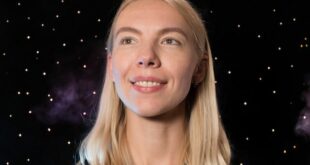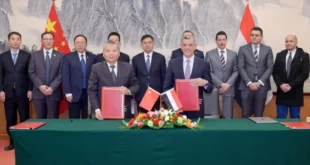
The head of the Egyptian Space Agency, Mohammed el-Qousy, announced on 25 December 2019 that the agency will launch a nationwide, six-year long competition to select Egypt’s first astronaut.
Addressing a delegation of the Education and Scientific Research Committee of the Egyptian House of Representatives, el-Qousy said that the selection process will comprise of several phases, each lasting two to three years. The first stage will assess applicants for their physical and psychological aptitudes for spaceflight, as well as their technical skills and qualifications. Once that phase has been completed, el-Qousy added, the second phase will whittle down the remaining applicants through a series of rigorous testing and training to select the final group from which one individual will be sent to the International Space Station (ISS).
“This is a six-year programme. At the first stage, which will take from two to three years, the selection of candidates in accordance with established international standards is planned,” el-Qousy is quoted as saying by the Egyptian national news agency, MENA.
El-Qousy stressed that the Egyptian astronaut selection competition is open to all young Egyptian men and women and that ultimately two individuals will be selected, and only one of whom will go to the ISS. El-Qousy provided no launch dates for an Egyptian astronaut, and nor did he provide any details as to which country, if any, is assisting Egyptian authorities in the astronaut selection process.
The announcement by the Egyptian Space Agency is the latest in a number of Middle Eastern countries having sent, or have expressed an interest in sending, an astronaut into space. In September 2019, the United Arab Emirates sent, with Russian assistance, its first ever astronaut to the ISS, Hazza Al Mansoori. The UAE announced its second astronaut selection process in early December 2019, and it is understood that Russia has offered to assist Bahrain and Saudi Arabia with similar astronaut programmes.
The Emirati astronaut mission appears to have started a regional rush to send astronauts to space, and Russia seems to be happy to help countries bolster their international prestige. Indeed, after the safe return to Earth by Hazza Al Mansoori last year, Iran also announced its intention to seek Russian assistance in sending an astronaut into space. This trend is not just restricted to the Middle East either, as Hungary and Malaysia have also expressed varying degrees of interest in having Russia train and launch astronauts for them as well.
One potential issue for Egypt is that the UAE paid its own way to have Russia train and launch Al Mansoori to the ISS, and presumably Bahrain and Saudi Arabia possess the financial resources to do the same should they decide to send their own astronauts to the ISS. For Cairo, however, those financial resources do not necessarily exist, and even if they did, the decision to spend them on an Egyptian astronaut could be politically controversial in a country that is still going through considerable economic hardship.
Egypt and Russia enjoy close and friendly relations, and Egypt is a large purchaser of Russian arms and technology – to include satellites – and there are even rumours that Cairo and Moscow are discussing the possibility of establishing a Russian military base in Egypt. Within that context Russia might offer to train and launch an Egyptian astronaut to the ISS in the coming years without any cost as part of a wider strategic relationship.
 SpaceWatch.Global An independent perspective on space
SpaceWatch.Global An independent perspective on space




